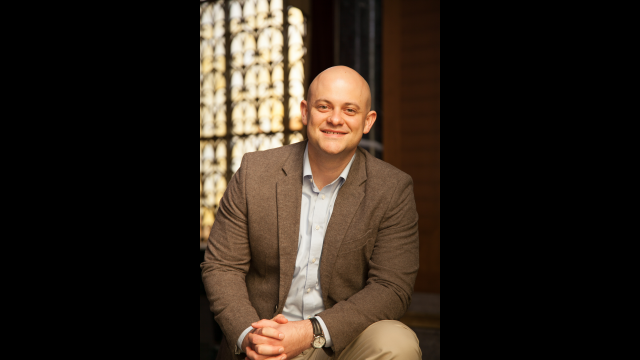By Terry Goodrich
More than a third of American clergy members are obese, with stress, longer hours, low pay and lack of self-care among the culprits, a Baylor University study has found.
But the profession has some built-in prevention methods that can help clergy be healthier — if they can take advantage of them.
Clergy who take a day off each week, take a sabbatical or take part in a support group with other pastors lower their odds of being obese, according to the study titled “Occupational conditions, self-care and obesity among clergy in the United States.” It was published in the journal Social Science Research.
“In many religious traditions, the theology actually mandates at least one day a week to recuperate,” said lead researcher Todd W. Ferguson, a doctoral candidate in sociology in Baylor’s College of Arts & Sciences. “Also, some pastors have the opportunity to be part of a small, intensive, introspective group of other pastors, and that can help with stress.”

Depending on a minister’s situation, Ferguson added, “there are structures in place that can actually help them cope and lower their chances of obesity.”
Ferguson and other Baylor researchers analyzed data representative of 539 clergy from varied denominations and religious traditions. They drew upon the Random Sample Leader Survey, part of the U.S. Congregational Life Survey.
Historically, clergy have been among the healthiest of major professions, with only teachers having lower mortality rates, but recent research shows that clergy’s obesity rate has climbed to 30 percent, according to Pulpit & Pew, an interdenominational research project on pastoral leadership.
“Pastors are an integral part of the most intimate aspects of community life — marriages, deaths, births — and these often entail food,” Ferguson said. “It’s part of the culture.”
But the reasons for clergy obesity are not that simple. Clergy are in a relatively high-status occupation, yet many are compensated poorly compared to other professionals with similar education levels. Pastors may have no other option than to be bivocational. The study showed that 10 percent lead more than one congregation, while 15 percent are employed in a second job of another type.
The stress of an additional job — coupled with the long hours and demands of pastoring — may make it difficult to have a lifestyle that includes nutritious foods, exercise and time to recover from physiological stress that contributes to weight gain.

“Pastors are ‘on’ or ‘on call’ at all times. The role or identity of a pastor is something you can’t just shut off,” said Ferguson, a former associate Baptist pastor in a Houston church. “And you are in an organization that relies partly — or even fully — on volunteers rather than a paid staff, who can leave on a whim.”
Researchers used a “distress index,” assessing clergy members’ stress levels by asking how often in the past year, they:
• Had too many demands made on them by congregation members.
• Experienced stress because of dealing with critical congregants.
• Felt lonely and isolated in their work.
• Experienced stress because of the challenges they faced in their congregation.
• Worked more than 46 hours per week.
Some congregations give clergy sabbaticals ranging from many months to many years, allowing for rest, professional refreshment and renewed motivation. Clergy in peer support groups can find emotional encouragement, and previous research shows taking part in spiritual support groups is associated with a reduced risk of obesity for men in particular.
The study showed that 20 percent had taken a sabbatical in the past 10 years, while 43 percent are involved in a support group that focuses on their personal concerns or struggles.
Baylor co-researchers were Brita Andercheck, Joshua C. Tom and Brandon C. Martinez, doctoral candidates in sociology, and Samuel Stroope, now an assistant professor of sociology at Louisiana State University.
